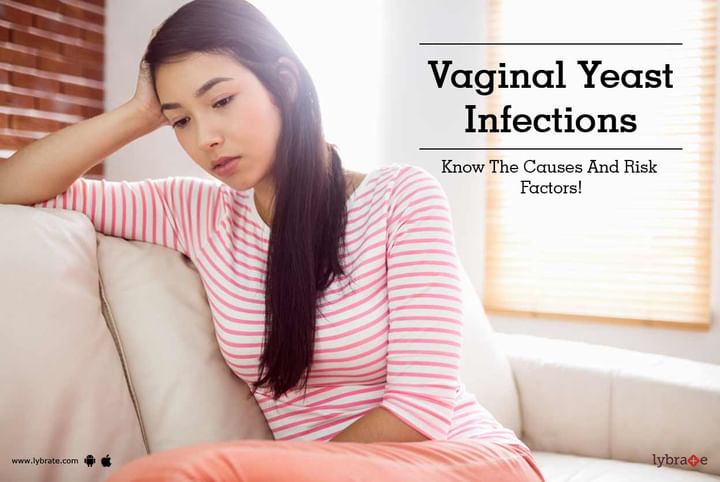Get the App
For Doctors
Login/Sign-up
Last Updated: Oct 23, 2019
BookMark
Report
Vaginal Yeast Infections - Know The Causes And Risk Factors!
Dr. Yuthika Bajpai SharmaGynaecologist • 24 Years Exp.MBBS, MD - Obstetrics & Gynaecology, Royal College of Obstetricians and Gynaecologists (MRCOG)
Vaginal yeast infection occurs when too many yeast cells grow in the vagina, causing inflammation. It can spread by sexual contact but is not considered as a sexually transmitted infection. A yeast infection results in soreness or itching in the vagina with a burning sensation while urinating.
Causes of yeast infections in the vagina:
The vagina contains a balanced mix of yeast and bacteria; but if the balance is disrupted, it can lead to yeast infection. The reasons for overgrowth of yeast infections are:
- If antibiotics are used more than usual, they can decrease the level of lactobacillus bacteria present in the vagina, changing the pH of vagina
- Having high estrogen levels during pregnancy by using high dose birth control pills and hormone therapy can lead to the overgrowth of yeasts.
- Having diabetes, especially when the blood sugar level is not checked and tends to be high
- Having a weak or impaired immune system
- Being overweight and having poor eating habits, including foods high in sugar level
Risk factors associated with the condition:
A number of factors can increase your risk of getting a vaginal yeast infection.
- Using antibiotics heightens your risk of developing vaginal yeast infection as it disrupts the balance between yeast and bacteria. Excessive intake of antibiotics can kill healthy bacteria, leading to overgrowth of yeast organisms.
- Having a weak immune system with conditions such as poorly controlled diabetes and HIV can lead to an overgrowth of yeast in the vagina. Corticosteroid medicines also weaken the immune system.
- Wearing pants that are tight-fitting, nonabsorbent and undergarments that trap warmth and moisture
- Having high estrogen levels due to an imbalance of hormone levels during pregnancy or menstrual cycle can also lead to vaginal yeast infection. If you wish to discuss about any specific problem, you can consult a gynaecologist.



+1.svg)
